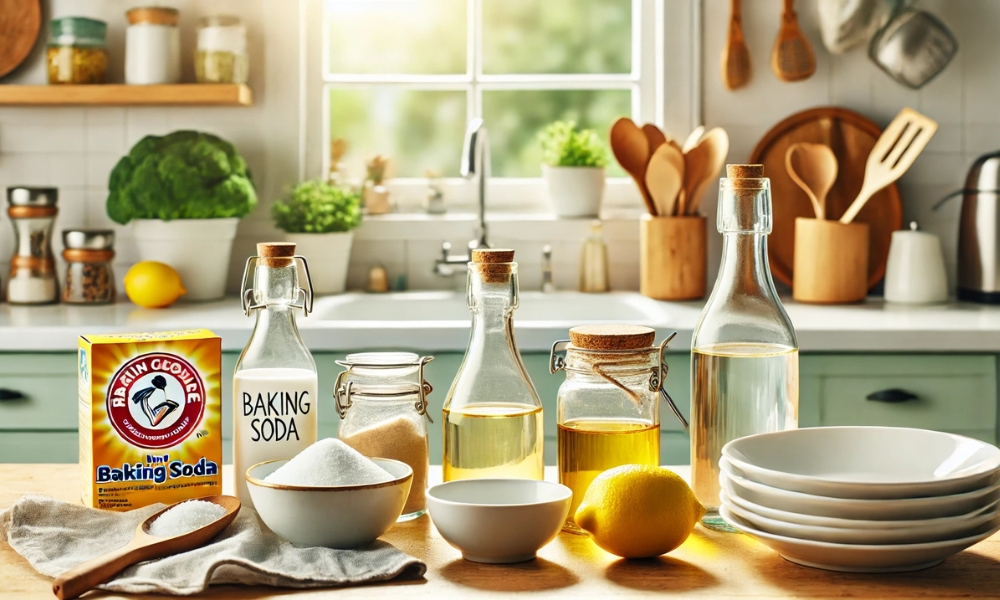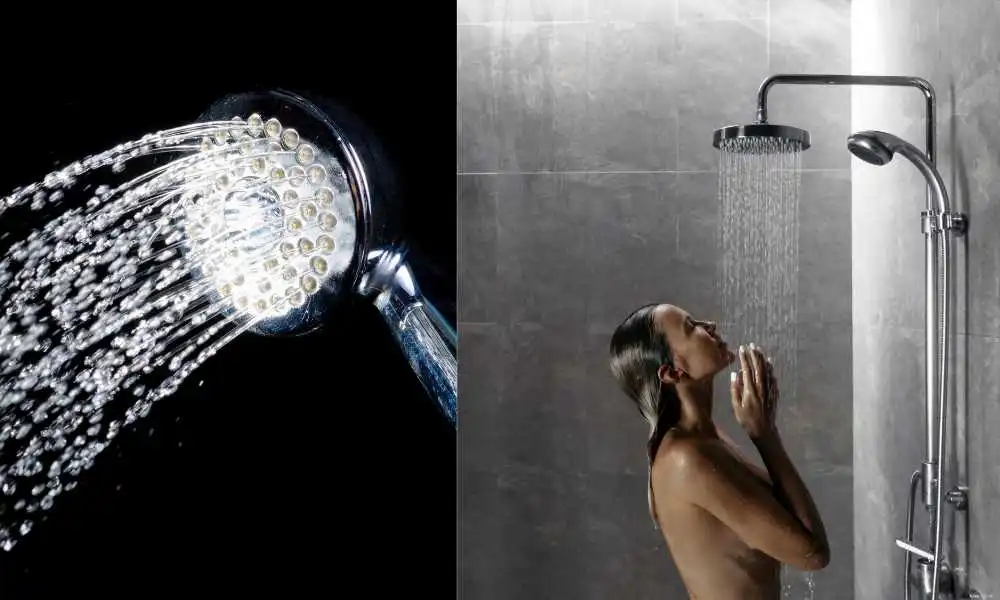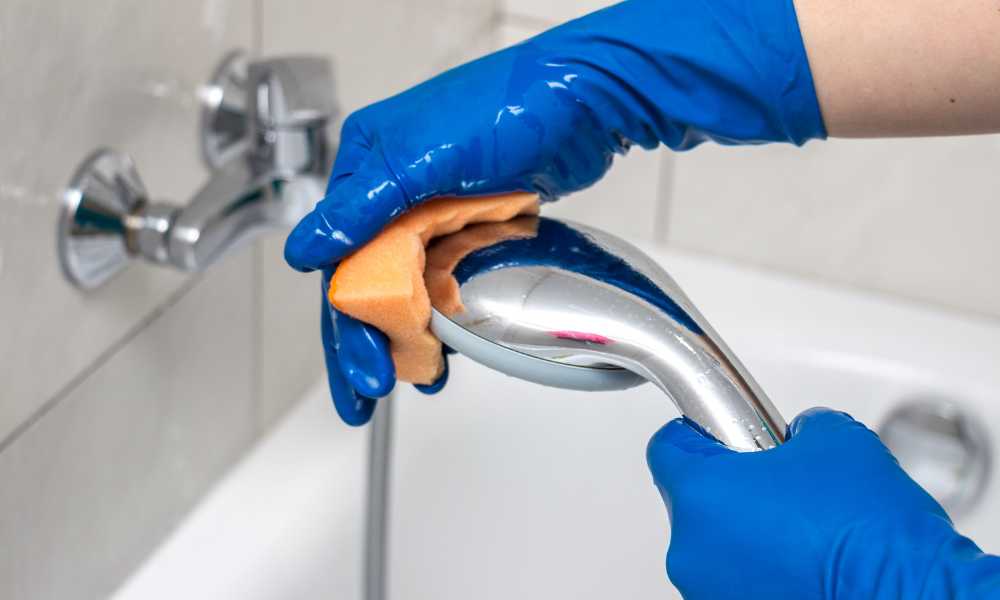Many people rely on wash dishes with without dish soap daily, but what if you find yourself without it? Whether due to environmental concerns or simply running out, learning alternative ways to clean dishes can be both practical and enlightening. Natural substitutes not only cleanse effectively but are also eco-friendly and free of the harsh chemicals often found in commercial soaps. These alternatives, rooted in everyday household items, offer an innovative and efficient approach to dishwashing, ensuring that your kitchenware remains spotless without traditional soap.
Why Consider Alternatives to Dish Soap?
Traditional dish soap contains synthetic fragrances, dyes, and other additives that can impact our health and the environment. Turning to natural options eliminates these chemicals and supports a more sustainable lifestyle. For those with sensitive skin, chemical-free alternatives offer a gentler solution, reducing the risk of irritation. Embracing soap-free washing methods also opens doors to simplicity and self-sufficiency, particularly valuable in moments when dish soap is unavailable.
Common Scenarios: When You’re Out of Dish Soap
It’s not uncommon to reach for dish soap only to realize the bottle is empty. In such cases, resourceful solutions can save the day. Alternatives become essential for camping trips, survival situations, or simply unexpected circumstances at home. Learning to use common household items transforms these moments from inconveniences into opportunities to adopt natural cleaning practices.
The Importance of Safe, Eco-Friendly Dishwashing Solutions
Eco-conscious dishwashing solutions reduce our carbon footprint by minimizing waste and pollutants in our water systems. Dish soap alternatives crafted from natural ingredients biodegrade without contaminating the environment, ensuring our actions contribute positively to a greener planet.
Household Ingredients as Soap Substitutes
1. Vinegar: A Simple, Effective Cleanser
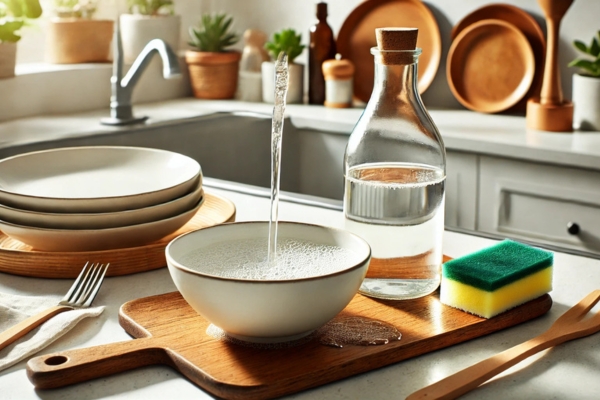
Vinegar’s acidity breaks down oils and cuts through grease, leaving dishes clean and odor-free. It’s as simple as mixing a splash of vinegar with water and applying it directly to your dishes with a sponge or cloth.
2. Baking Soda: Tackling Grease With Abrasive Power
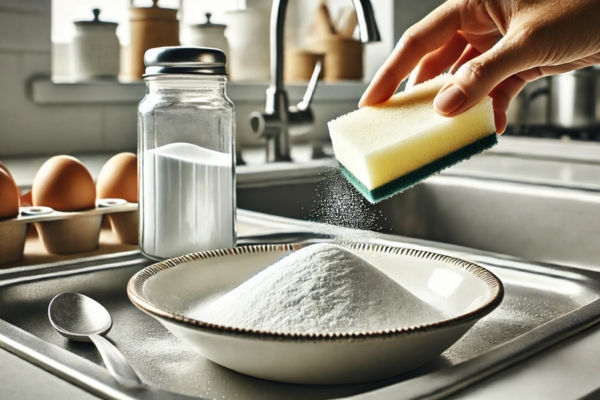
Baking soda’s gentle abrasiveness makes it excellent for scrubbing off food residue. Its alkaline nature neutralizes acids, lifting grease and grime effectively. Sprinkle baking soda on damp dishes, scrub, and rinse for a squeaky-clean result.
3. Lemon Juice: Natural Freshness And Degreasing Agent
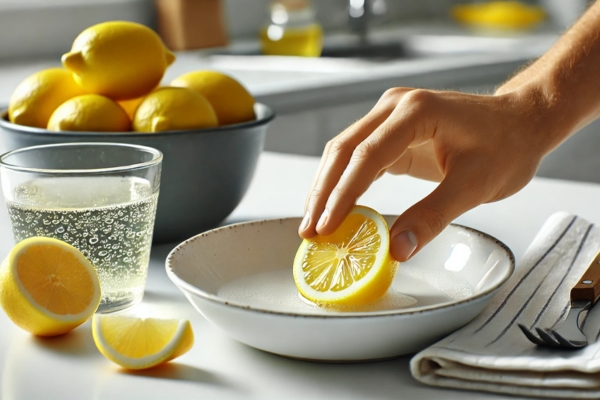
Lemon juice acts as a natural degreaser and deodorizer. The citric acid dissolves fat while imparting a fresh scent. Simply rub a lemon wedge on greasy areas or mix lemon juice with warm water for an efficient cleanse.
4. Salt: Scouring Tough Stains Naturally
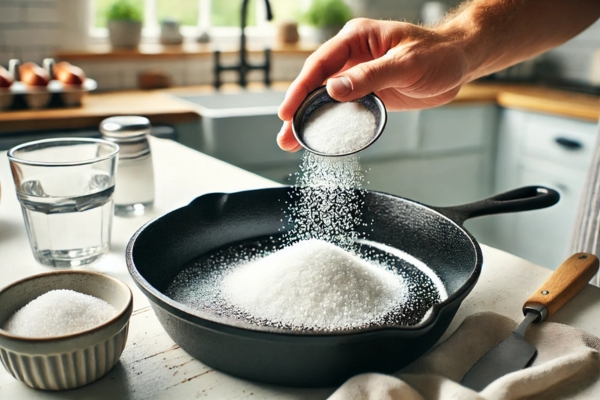
Salt’s gritty texture provides the perfect scrubbing power. Combined with a bit of water, salt tackles baked-on stains with ease. It’s especially useful for cleaning cast iron pans, leaving them free from residue without stripping their seasoning.
5. Olive Oil: Surprising Solution For Sticky Residue
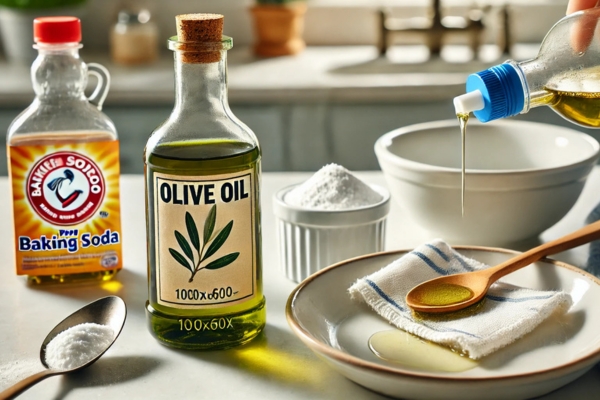
Olive oil is a clever solution for sticky, stubborn residue. A small dab on a cloth can dissolve certain residues, especially those left by adhesives or stubborn oils. After application, follow up with a natural cleanser like baking soda or vinegar for a complete Clean Dishes Without Soap.
.
Using Hot Water for a Cleaner Rinse
One of the most straightforward and surprisingly effective tools for dishwashing is hot water. Hot water breaks down oils and softens food residues, allowing for an easier rinse. For dishes with light residues, a thorough rinse with hot water alone often does the trick. To tackle tougher spots, let the dishes soak in hot water for a few minutes before rinsing to lift grease and grime with minimal effort.
Using Cloth and Scrubbing Techniques
The right cloth or sponge is vital when washing dishes without soap. Microfiber cloths, with their fine fibers, are ideal for trapping food particles and wiping away grease without scratching. For scrubbing, use a natural fiber brush or a cloth with a coarse texture, as these effectively lift stubborn residues without the need for chemicals. Working in a circular motion also increases the effectiveness of these tools.
Using Ash: An Old-Fashioned but Effective Solution
Ash has been used for centuries to cut through grease and dirt. The potassium carbonate in ash acts as a mild alkali, which breaks down oils and residue. To use, simply gather fine ash (avoid ash from chemically treated wood), mix it with a bit of water to form a paste, and scrub. Rinse thoroughly after scrubbing to prevent any residue from clinging to your dishes.
Natural Cleaning Powders
Some household powders make excellent dishwashing agents. Cornstarch, for instance, absorbs oils, while baking soda provides a gentle, abrasive scrub. Sprinkle a bit on your damp dishes and scrub with a cloth or brush, then rinse. These natural powders effectively remove residue without the need for synthetic cleansers.
How to Use Plain Hot Water with a Cloth
For those seeking simplicity, hot water and a cloth can work wonders. Wipe each dish with a cloth soaked in hot water, applying pressure on any stubborn spots. Rinse thoroughly under hot water, ensuring that all particles are removed. This method, though minimal, can effectively leave dishes free from grease and residue.
Cleaning Silverware and Glassware Without Soap
When washing silverware and glassware without soap, a bit of extra care is needed. For silverware, sprinkle some baking soda onto a damp cloth and polish each piece to remove grease. For glassware, a vinegar rinse is ideal; it cuts through any lingering oils while leaving glass sparkling and streak-free. Simply rinse the glass with a vinegar solution and dry with a lint-free cloth for a clear, polished finish.
Making Your Own Homemade Dish Soap
If a soap substitute is preferred, homemade dish soap can be an easy solution. Combine equal parts white vinegar and lemon juice with warm water to create an effective cleaner. For a gentle, foaming solution, add a few drops of castile soap, a plant-based soap that’s biodegradable and free from harsh chemicals. This DIY cleaner can be stored for several weeks, providing an eco-friendly alternative to commercial dish soaps.
Eco-Friendly Soaking Solutions
A pre-soak can be a game-changer for greasy or stubborn dishes. Fill a basin with warm water, adding a splash of vinegar and a teaspoon of salt. Let the dishes soak for 10-15 minutes. Vinegar acts as a natural degreaser, while salt adds mild abrasiveness. After soaking, dishes will be easier to rinse clean with a sponge or cloth.
Using Rice to Clean Bottles and Hard-to-Reach Spots
Rice grains serve as natural abrasives, ideal for scrubbing narrow jars or bottles where brushes can’t reach. Pour a handful of rice into the bottle, add warm water, and shake vigorously. The rice grains scrub the insides, removing any lingering stains or residues without scratching.
Disinfecting Without Dish Soap
To ensure cleanliness without soap, consider natural disinfectants. Vinegar is particularly effective; its acidity kills bacteria and removes odors. After rinsing dishes with hot water, apply a diluted vinegar solution (one part vinegar to three parts water) and let sit for a few minutes before a final rinse. This method naturally sanitizes without chemicals.
Removing Odors Without Soap
Lingering odors from strong foods can be banished with ease using natural agents. Baking soda, known for its deodorizing properties, neutralizes odors effectively. Sprinkle a bit onto damp dishes, rub gently, and rinse. Lemon juice is another excellent odor neutralizer, leaving a fresh scent that masks any lingering smells from pungent foods.
Effective Combinations of Natural Ingredients
Some natural ingredients work even better when paired. Baking soda and vinegar, for example, create a fizzing action that breaks down grime. For stubborn pots, sprinkle baking soda, add a splash of vinegar, and scrub. Salt and lemon juice also work well together: the abrasive salt combined with acidic lemon juice cuts through grease, leaving surfaces fresh.
Cleaning Pots and Pans without Soap
Burnt pots can be tricky without soap, but boiling water and vinegar offer a simple solution. Pour a mixture of water and vinegar into the pan and let it boil for several minutes to loosen stuck-on food. For remaining residue, sprinkle baking soda and scrub with a sturdy brush for a spotless finish.
Caring for Non-Stick Cookware Without Dish Soap
Non-stick cookware requires gentle handling. Use a soft cloth and warm water to clean, avoiding abrasives that can damage the coating. For grease, try a little baking soda with a soft sponge. This approach helps maintain the pan’s non-stick properties while keeping it free from residue.
Using Cloth Napkins or Rags for Dish Drying and Polishing
Cloth napkins or rags offer a sustainable alternative to paper towels for drying and polishing. Lint-free cloths such as microfiber or cotton work best, leaving dishes shiny without smears. Drying with a cloth also reduces water spots on glassware and keeps dishes looking pristine.
Safety Tips for Dishwashing Without Soap
When using natural ingredients, be mindful of quantities. Some ingredients, like vinegar, are acidic and should be used sparingly on certain materials. Similarly, abrasive agents like salt and baking soda can scratch delicate surfaces if applied too vigorously. Test these methods on a small area first to ensure they’re safe for your specific dishes.
Alternative Products Available in Stores
For those seeking convenience, several eco-friendly dishwashing bars and powders are available in stores. Look for products labeled biodegradable or plant-based, which tend to have fewer chemicals. Castile soap is a popular option; made from olive oil, it’s mild, effective, and readily available.
Storing and Reusing Natural Cleaning Solutions
Natural cleaners like vinegar solutions and homemade dish soaps can be stored in airtight containers for reuse. Keep these solutions in cool, dark areas to maintain their effectiveness. Replace homemade solutions every few weeks to ensure freshness and efficacy.
Tips for Keeping Dishes Clean Between Washes
Maintaining cleanliness between washes minimizes buildup, making soap-free dishwashing easier. Scrape off food scraps immediately, and give each dish a quick rinse to remove any lingering particles. For pots and pans, wiping with a paper towel before rinsing prevents grease buildup and simplifies the cleaning process.
Conclusion
Dishwashing without soap needn’t be an inconvenience. With the right techniques and a few simple ingredients, you can achieve sparkling, fresh dishes without the need for traditional dish soap. These methods provide an eco-friendly approach to kitchen cleanliness, proving that nature offers plenty of solutions for our everyday tasks. Embrace these alternatives and experience a new level of clean that’s safe, effective, and kind to the planet.
